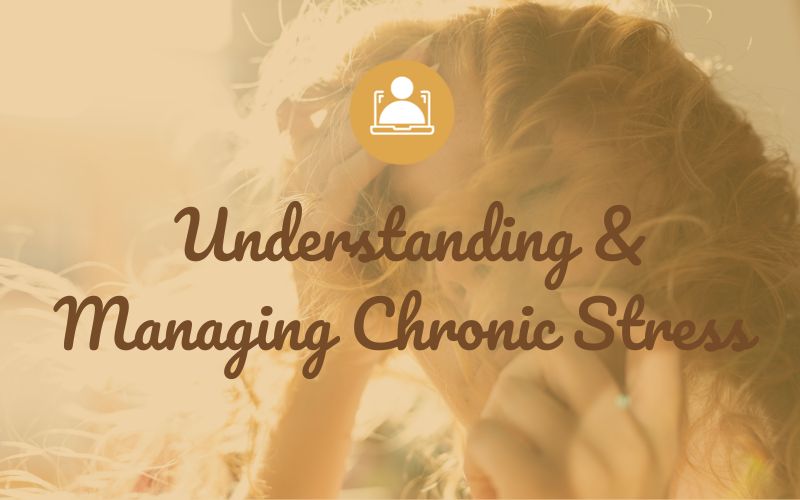Every day we hear the statement “I am so stressed”. We hear it so often it doesn’t mean a whole lot. Many of us have created an identity as “stressed”. Stress is a normal part of everyday life and all of us experience stress, both positive and negative, every day. Some of the most stressful events in our life are wonderful for many people such as getting married, buying a house, or getting a new job. For short periods of time a stressor can motivate us, energize us, and create change.

Good Stress Versus Chronic Negative Stress
Unfortunately, those of us who identify as “stressed” all the time are likely experiencing chronic stress. Chronic stress is dangerous to our health. Among the many physical effects, it can increase our risk of high blood pressure, heart disease, ulcers, and headaches. When our stress is never-ending we tend to minimize the negative symptoms we experience since they are ever present.
Signs Stress is Becoming a Healthcare Concern
There are many signs stress has moved from a nuisance to a problem. Physical signs of stress include tense muscles, headaches, poor sleep, and digestive issues. Stress can lead to people using more alcohol or drugs in an attempt to escape their feelings. Other signs of chronic stress include cluttered thoughts, feeling scattered, distractibility, poor concentration, feeling overwhelmed, memory issues, irritability, and hopelessness.
How to Reduce & Manage Stress Levels
Although we can’t change all of the things that cause our stress we can adjust how we experience and manage our stress.
First, dump the stress. One way to do this is a brain dump. Take out a piece of paper and write down everything stressful to you. You don’t have to show this list to anyone so be honest with yourself. One of the tricky things about stress and anxiety is that it spins around in our brain getting bigger and bigger. Imagine a storm with lots of wind. The wind gets stronger and picks up more and more debris until it is a tornado. OK, my science might be off, but mentally this is what happens. When you keep your difficult thoughts in your head they get bigger and stronger. Putting them on paper slows down the storm and calms the chaos. Once you feel you have dumped all of your thoughts walk away. Take a walk, take some deep breaths, or even take a nap. You can choose to come back to your brain dump to determine if there are things you can do something about to reduce the feeling that you are overwhelmed. Other people find it helpful to destroy their list to help them release stressful thoughts.
A second and important way to reduce your stress is to get your body moving. Whether you go for a walk, have a solo dance party, do some deep cleaning or some other form of exercise, the physical activity helps you to dump the stress hormones.
Third, say no. Look at your to-do list, calendar, etc, and get rid of as many commitments as you can. You might think everything on your list is critical, but remember you are critical too and every yes on your list is a no to your self-care. Clear space in your life to breathe and relax more. Consider that your time for yourself is important for your health.
Ask for Help
Many people find that counseling can be a way to schedule an opportunity for managing your stress. When you struggle to manage stress on your own a social worker can help you to work through what is going on so you can feel more peace. If you’re feeling like stress is taking over, we would be happy to help you find new strategies to release stress and manage your experience. Learn more about our team of therapists and contact us today to book an appointment.












